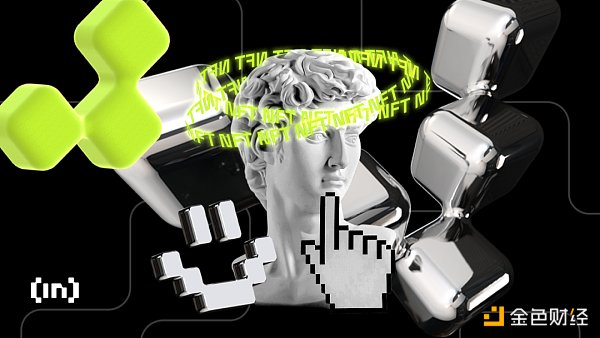Insights and Reflections Why is it difficult to hear the voices of female entrepreneurs in Web3?
Challenges in hearing female entrepreneurs' voices in Web3
Text: Ashley
Image: World of Women

- Exploring the Concept and Function of Layer 3 in Modular Blockchain
- Inventory of Seven Bills that Could Determine the Future of Cryptocurrency in the United States
- Bybit Compensation Manager’s Self-Embezzlement Analysis Vulnerabilities and Improvements in Blockchain Enterprise Financial Management
Can you name three or more female founders in Web3?
Think about the women you know in Web3, what kind of work are they engaged in? Operations, business development, technology, or founders?
Why is it difficult to hear the voices of female entrepreneurs in Web3? Is it due to a lack of entrepreneurial ideas, insufficient capabilities, or a lack of ambition?
Last month, SeeDAO had a podcast episode featuring its founder, Tang Han. When discussing the podcast theme with Tang Han in advance, the original intention was to invite Tang Han to share her Web3 experience. However, during the conversation, it was discovered that as a female entrepreneur, there are few sisters who choose entrepreneurship, and the venture capital circle is dominated by males. What causes women to be unwilling to start businesses in Web3?
Later, this episode turned into a discussion on female entrepreneurship – “Facing Ambition, We Can Stand in the Center of the Stage.” Some resonating points were generated:
- Both domestically and internationally, the majority of Web3 founders are male. This is due to the fact that the main population in the early circles consisted mainly of finance and technology professionals, most of whom were male.
- The blockchain world is a highly rational world and carries great risks, or in other words, it is a feast for gamblers. Most women naturally do not like taking risks.
- Women are not inferior to men in terms of knowledge and courage, but they dislike conflicts and contradictions. When it comes to critical governance and leadership, they often tend to be accommodating by inertia.

Returning to the first question: Can you name three or more female founders in Web3?
I remember when I asked Tang Han if she could share the stories of other female founders, the air suddenly became awkward for a few seconds and she said: There are many outstanding women in Web3, but female founders are really rare. Later, I searched and found: Flori, the founder of BlockFi; He Yi, co-founder of Binance; Kelly, co-founder of Bakkt; and Flament from the Near Foundation (from left to right in the image below).
In addition, it is difficult to find other examples.
From the backgrounds of these co-founders, it can be observed that they are mostly responsible for enterprise marketing operations, public marketing, strategic planning, and financial management. On the other hand, the types of enterprises in Web3 are mostly technology-oriented. In fact, this trend seems to exist in the Web2 world as well: technology companies are mostly founded by men, while there are many female entrepreneurs in the media and art industries (although not absolute).
We cannot deny that women generally have stronger perceptual abilities than men, but they are generally weaker in rational analysis. Of course, there are also women with very strong rational skills. There are also reports that the current ratio of male to female graduate students is biased towards females.

Why is it difficult to hear the voices of female entrepreneurs in Web3?
In the book “YC Startup Camp”, I found another possibility:
From the early days of YC’s birth, founder Paul has been asked about the scarcity of women among entrepreneurs. In October 2005, when the first batch of YC entrepreneurs entered the market, he pointed out in an article that the scarcity of women was not only very obvious in YC, but also cannot be ignored in the entire entrepreneurial community. He mentioned that only 1.7% of funded startups were founded by women. “The proportion of female geeks is indeed small, but not to such an extent. So, what is the reason for this gap?” He raised this question. “If you think about the fact that the founders of successful startups are often old friends, a possible answer emerges. Since a person’s close friends are usually of the same sex, the probability of finding two female friends to start a business together is even smaller in a group of entrepreneurs where women are already scarce.”
The co-founders of successful startups are often old friends, and a person’s old friends are usually of the same sex. In a group of entrepreneurs where women are already scarce, the probability of finding two female friends to start a business together is greatly reduced. So, the scarcity of women is just a “math” problem, not intentional. The admission rate of female entrepreneurs is actually not low, but the problem is that there are very few women who want to be entrepreneurs.
In fact, statistical data shows that women have a much greater advantage as entrepreneurs than men, because the media will report on them eagerly, and venture capitalists will also rush to invest in them.
The main obstacle to women’s entrepreneurship is the initial belief that entrepreneurship is impossible.

Blockchain is an absolutely competitive world. Survival of the fittest, the winner takes all. True strength will be highly admired here, regardless of gender. When women in this world want to gain more rights and positions, they should demonstrate their abilities and ambition to take responsibility. “Rights given by others can never be lasting,” and women’s ambition is not just a slogan. We look forward to seeing more women stepping forward and making a difference, so that the entire ecosystem can hear more female voices. Blockchain also needs more creativity driven by sensibility!
Compared to the traditional world, this is already a fairly fair ground.
– END-
References:
The winning women of Web3 in 2022
We will continue to update Blocking; if you have any questions or suggestions, please contact us!
Was this article helpful?
93 out of 132 found this helpful
Related articles
- The integration of blockchain and AI is a natural demand analysis of relevant use cases.
- Interview with Linea product manager ConsenSys entering the crowded Layer2 race, what is unique about Linea?
- Legal Perspectives on Blockchain Issues and Pathways
- Exploration of Full-Chain Games Freedom, Liberation, Authenticity, and the On-chain Deployment of Game Core
- How does the on-chain intelligence platform Arkham accurately target ICP?
- Analysis of the BOLD Verification Protocol How to Make Arbitrum More Decentralized?
- Assessing the Impact of EIP-4844 on Layer2 Protocol Costs and Profits







